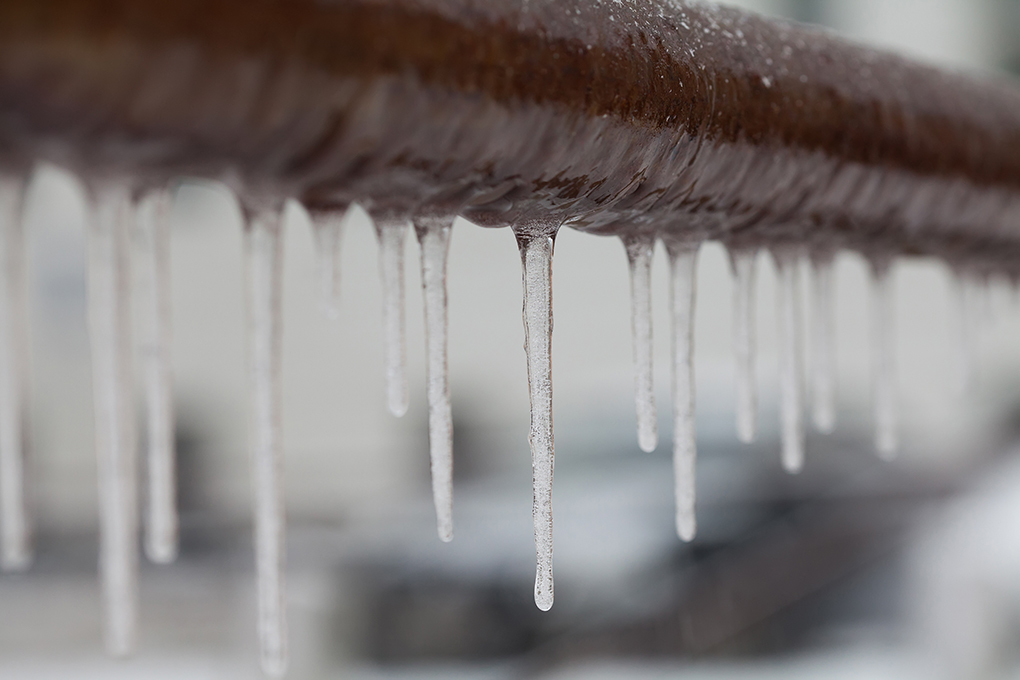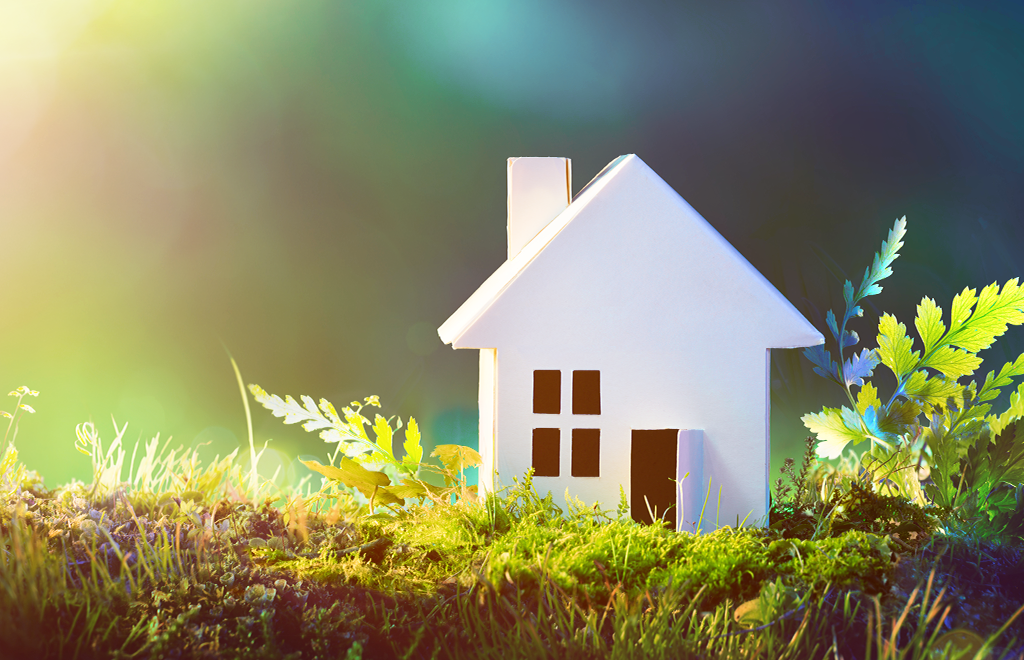Almost every property in the UK has a hidden network of copper, steel & plastic pipes which are essential to everyday living, from supplying you water for drinking to heating your home in the colder months. We only really notice pipes when something goes wrong with them and one of the biggest issues would be if a pipe bursts, not only can this cause thousands of pounds of damage, but it can also disrupt your home for months with clean-up and repairs to the affected areas.
We have put together this guide on how to try and avoid burst pipes from occurring in your home.
Frozen Pipes
The winter months can put stress on your pipes, especially if there are cold snaps that take the temperature below 0°C, this can cause the water in the pipes to freeze and expand, causing a build up in pressure, when this gets too high the pipe bursts.
However, there are ways to reduce the risk of this happening:
1. Insulate exposed pipes in cold areas
Wrapping pipes in soft foam to protect them from cold draughts, in uninsulated areas, such as your loft, or outside is a cost-effective way of trying to help prevent the pipe from freezing. You may also want to consider an insulation jacket for any indoor water tanks you have.
2. Keep your heating on low or set it to come on at a certain temperature
If you can afford to have your heating on a constant low setting, this will ensure the temperature in your house stays warm enough or you could set your thermostat to around 7 °C so if temperature dips below this, your heating will come on to stop it dropping further, helping to prevent the pipes from becoming frozen.
3. Open your loft hatch and kitchen/bathroom cupboard doors
By doing this you allow warm air from the rest of the home to circulate into the colder areas that contain pipes, this should warm it up enough to help prevent any issues.
4. Boiler defrost setting or smart thermostat
Some boilers have a setting that kicks in when the water drops below a certain temperature, it then heats the water back up to a point to stop it freezing. If your boiler does not have this setting then you may want consider a smart thermostat which would offer similar functionality.
5. Away from your home
If you are going to be away from home for an amount of time during a cold snap all the tips above will help, but you may also want to consider:
- Draining your freshwater system while on your trip, do this by turning off your stopcock and running the taps until there is no longer a flow of water from them.
- If you have an internal camera system at home check on the property daily to ensure there are no issues
- Use a leak detection device system that can detect standing water & humidity in your home, it switches off the supply automatically, which if away from home could be essential for reducing the risk of damage
- Leave a key with a neighbour or friend who could check the property while you are on holiday & who might be able to assist if an escape of water does happen.
- Remember to refill the systems you drain when you get back home before you use appliances or the toilet
If a pipe is frozen
If you discover a pipe has frozen there are certain things you can do to defrost it:
- Firstly, turn off the stopcock to stop the water flow, only turn back on if you know the pipe isn’t damaged
- Wrap a hot damp cloth around the pipe until water starts to flow again
- If you have an old hot water bottle this could also be used to heat the pipe
- Use an electric hair dryer on low setting to gently heat the pipe remembering to not leave unattended
- Place a portable heater near the pipe but also don’t leave unattended
- Never use a naked flame e.g a blowtorch or boiling water as this could cause permanent damage to the pipe but also cause a fire

Corrosion
Over time all pipe materials will deteriorate as they age, in general metal pipes do last longer than the PVC variety that has become more popular in recent times.
Signs that a pipe might be corroding:
1. Are you in an old property?
If you live in an older property you may want to have your plumbing inspected, especially if it has the original pipe work, to give you peace of mind that the system is in good order.
2. Discolouration of water
If the water coming from your taps is a brown or reddish colour this could be a sign that there is an issue with the pipe deteriorating which could lead it to burst.
3. Clogging
As the inside of the pipe starts to corrode it will release debris which builds up causing the pipe to clog, pressure could build at the clog point & burst the pipe. Look out for a slow flow of water from your taps or possibly a radiator that doesn’t warm up.
4. Warping
If you notice a pipe which has warped or distorted this could be a sign it is corroding, if it continues to warp it could lead to the pipe bursting.
What to do if you suspect corrosion
Contact a qualified plumber if you notice any of these issues, it could be a small cost upfront but if left unattended could result in a bigger problem further down the line.
High Water Pressure
Water pressure is the measurement of the force that pushes water through your pipes, it is measured in ‘bars’ and is important as it determines the flow rate from your taps. If it is too high, it can put stress on the pipes which could lead to leaks & possible rupturing.
How do you know if the pressure is too high?.
1. Do your pipes bang?
If you hear a loud banging noise when you switch off your taps, then this could suggest that the pressure of the water coming into your home is too high.
2. Leaking taps
If one or more of your taps is constantly dripping or it spits and sprays when you turn it on, it might be due to higher-than-normal pressure
3. Higher water bills
If you are on a water meter & you see a sudden increase in the cost you are paying on your bills this could suggest the flow is now higher, which is leading to more usage when you use your water.
What to do if you suspect high water pressure
In the first instance contact your water company to discuss this problem, they should be able to give you steps to take to reduce the pressure yourself or discuss the possibilities of specialist valves that could be fitted to reduce the pressure.
Accidental Damage
Most pipes in our homes are hidden away behind walls, under floors or in roof spaces so usually they are protected from inadvertent damage, but there are situations which could lead to them being accidentally damaged.
How might damaging a pipe accidentally occur:
Piercing a pipe
As mentioned, pipes are generally hidden, which can make it difficult to know where they are, so if you are planning to screw or nail something to a wall it might be best to get a pipe detector to check if a pipe runs under the place you are working on
What to do if a pipe does burst
If the unfortunate does happen and a pipe bursts, then these steps might help you:
1. Turn off the water at the internal stopcock, which is usually located just after the water pipe enters the property, this can be:
- In an airing cupboard
- Under the stairs
- Under the floorboards
- Near the front door
- In the garage, utility room, bathroom, or cellar
2. Turn off the electricity at the fuse box if water is leaking near electrical points, which are usually found:
- In utility rooms
- Enclosed porches
- Under the stairs
- In the hallway
- Or in a garage
3. If you have home insurance call your provider to check if you are covered for escape of water
4. If you don’t have cover, call a qualified plumber
5. Run all taps to drain the system, save some for toilet flushing & hand washing
6. If safe, try to remove any excess water with towels or a mop
7. Place dehumidifiers in the affected areas (when safe to do so) to help remove any residual water in the air and walls
Hopefully these tips have helped you prepare or have given you a better understanding of what to look out for before a pipe in your home bursts. If you do suspect there is an issue with a pipe call a professional plumber for their advice if inside your property boundary, if outside of the boundary call your local water company.
You might also be interested in
Eco friendly home tips
10 simple ways that you can help make your home a model of sustainability
Understanding your home cover and when it applies
Take a look at our tips & keep your home covered.


